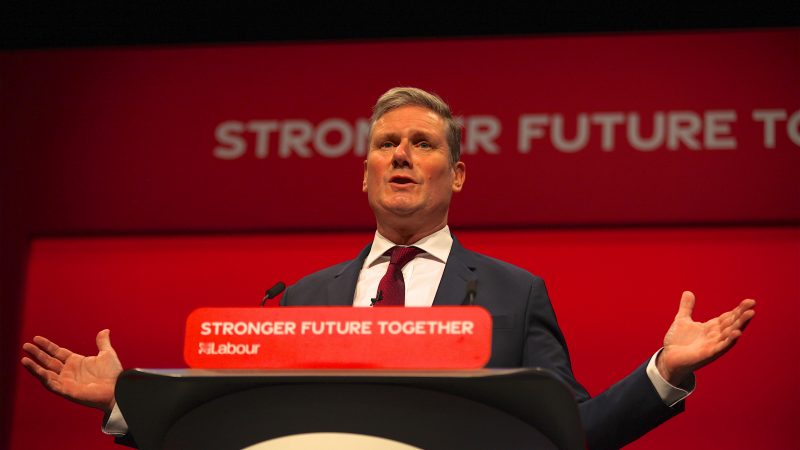
Keir Starmer has been on a journey. During the leadership election, he described the 2017 manifesto as “our foundational document” and praised its “radicalism”, telling members: “We have to hang on to that as we go forward.” His ten pledges were clearly designed to echo the 2017 and 2019 manifestos (albeit with key differences, such as calling for “common ownership” rather than nationalisation). And just a few months after becoming leader, he insisted that those pledges “remain my priorities”.
But a year into the job, he revealed the party’s policy review would not use the manifestos produced under Jeremy Corbyn’s tenure as its starting point. He started 2022 with a speech to “definitely distance himself” from the 2019 manifesto and earlier this week he said the party had eschewed the document, “put it to one side”, and is “starting from scratch”. The reasoning given seems to be that circumstances changed with Covid, and so therefore so will the policy offer. Consider his comment when asked about abolishing tuition fees (one of his pledges): “What we do have to recognise is that having come through the pandemic, we need to look at everything in the round, and make choices about where we want to put our money.”
The problem with using a phrase like “starting from scratch” is it suggests that, two years into your leadership, you have no proposal for the country. This was not lost on Dominic Raab, who used his appearance at Prime Minister Questions yesterday to accuse the Labour Party of having no plan. In that sense, it is an unhelpful thing to say for the leader of a political party hoping to persuade people to trust it to run the country in the not-too-distant future. It is also untrue to suggest Labour has not put forward any ideas. The party has announced lots of policies over the past two years, including some pretty substantial proposals – take its employment rights green paper, for example. Or the £3bn package of policies on welfare, or the £28bn per year green investment pledge unveiled at the last conference.
Despite this, Starmer faces accusations from both the left and right that people do not know what Labour stands for – a problem cited by both Len McCluskey and Tony Blair, for example. The problem, or perceived gap, is over narrative. A party needs to tell a story about what it wants to do. A collection of policies needs to be tied together, strung into a comprehensive vision for the country. Conference in September will be a natural point for the leadership to lay out the vision.
The last conference saw a raft of rule changes pushed through by the leadership. This one will be much more policy-focused – not least because we are now that bit close to an election. This is when it will become clearer what the manifesto will look like. The weeks and months leading up to conference will be fraught with tension as different groups within the party respond to the soundings from the leadership, and pass judgement on where Starmer has ended up on his journey since pitching for the leadership in 2020.
Sign up to LabourList’s morning email for everything Labour, every weekday morning.



More from LabourList
‘SEND reforms are a crucial test of the opportunity mission’
Delivering in Government: your weekly round up of good news Labour stories
Labour place third in Gorton and Denton by-election as Greens gain seat